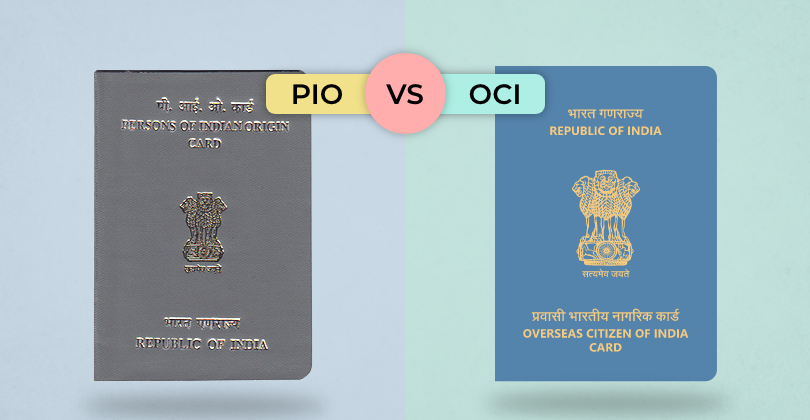Are you of Indian origin and living abroad? You've probably come across terms like PIO and OCI. These cards offer different benefits, but it can
Small online loans have become quite the go-to for dealing with unexpected costs or for some quick financial assistance. You can access funds quickly with hassle-free documentation. But with tax season around the corner, a question arises: can these loans help you save on taxes?
Many myths and misconceptions exist about using small loans online and their potential tax benefits. We'll assess the facts and separate fiction from reality to help you decide.
Understanding Small Loans Online
Are you facing unexpected financial urgency? Small loans online, or what some might call small personal loans, could be what you require. Digital lenders employ user-friendly platforms like an online loan app to provide short-term loans ranging from ₹3,000 to ₹50,000. Small loans are also referred to as "small credit loans", but they can also specifically refer to loans for individuals with no credit history (new-to-credit users).
They're created to cover temporary gaps in cash flow, helping you take care of unexpected expenses. With small loans without CIBIL score requirements, these platforms open the door to financial support for a broader audience, ensuring immediate financial needs are met efficiently and effectively.
The Basics of Tax Benefits on Loans in India
Tax season brings questions about maximising deductions and the potential benefits. When considering small loans online (like ₹3,000 instant loans or ₹5,000 personal loans), it's essential to know how they affect taxes.
Tax laws in India do offer deductions for certain types of loans. However, it's essential to note that not all loans will qualify for these benefits directly. The benefit typically lies in using the loan amount for a purpose that qualifies for tax deductions. For example, a home loan used for property purchase might offer tax benefits on the interest paid.
Here's the key takeaway: while small loans online might not provide direct tax breaks, how you use the borrowed funds can influence your tax situation.
Fact vs Fiction: Tax Benefits of Small Loans Online
During the tax season, it's beneficial to understand how small loans online, such as ₹3000 instant personal loan or ₹5000 personal loan, affect your financial strategy.
We'll discuss some myths and clarify their connection to tax deductions.
Myth: All small loans online automatically provide direct tax benefits.
Fact: Not all small loans offer direct tax benefits. The interest paid on specific loans, like home loans and education loans, can be claimed under particular tax sections for deductions, but this does not apply universally to all small loans.
Myth: You can deduct the entire amount of a small online loan from your taxable income.
Fact: The tax advantage depends on the use of the loan. Only the interest on the loan used for tax-deductible purposes might offer indirect tax benefits, not the entire loan amount.
Myth: Small loans online are a guaranteed way to reduce your tax burden.
Fact: The potential tax deductions for loans vary based on the type of loan and your individual tax bracket. Small loans do not automatically lower your taxable income and are not a surefire way to reduce tax burden.
Myth: There's no need to worry about tax implications when taking a small online loan.
Fact: It's crucial to consider the tax implications of any loan. Tax laws are complex, and consulting with a tax advisor can help you navigate the potential benefits and ensure compliance.
Myth: Small loans without CIBIL checks are the best option, regardless of the interest rate.
Fact: While loans without CIBIL checks are available, it’s important to consider all aspects of borrowing, including interest rates. Building a good credit history can lead to better loan terms and lower interest rates, which saves money in the long term, even if the loan itself doesn’t offer direct tax benefits.
Exploring Tax Benefits of Small Loans
-
Business Growth: Self-employed individuals or small business owners may use a small online loan to purchase inventory or equipment. This could be a smart move, as the interest you pay on the loans for these "expenses" might reduce your taxable income.
-
Strategic Investments: A small loan can be used to invest in assets eligible for tax deductions. For example, a freelancer purchasing a new laptop with loan funds could depreciate that laptop, offering tax deductions.
-
Improving Flow of Funds: Small loans can help businesses manage their money better, allowing them to cover unexpected costs without disrupting their operations.
-
Boosting Your Credit Score: Making loan payments on time can improve your credit score. A better credit score could lead to better loan terms and rates in the future.
Anyone considering a small loan should consult with a tax professional. They can help ensure you get the most out of potential benefits while complying with tax laws.
KreditBee: Your Partner in Navigating Small Loans Online
KreditBee stands out as one of the leading digital platforms offering easy access to personal loans online. We provide a straightforward application procedure, quick approval time, and attractive interest options.
Critical features of KreditBee include:
-
Easy Access: You can apply for a loan anytime, anywhere.
-
Quick Funds Transfer: Experience speedy processing and fund receipt.
-
Flexible Repayment Options: Opt for repayment plans based on your financial situation.
-
Hassle-Free Documentation: Get started on your loan with just a few necessary documents, streamlining the entire process.
While KreditBee also provides small personal loans to those who might otherwise struggle to obtain financial backing, it actively supports customers in improving their credit scores. Improving your CIBIL score facilitates easier access to future loans and helps you secure better financial terms. This commitment strengthens KreditBee’s role as a financial ally.
Frequently Asked Questions
Credit history primarily influences loan approval and conditions rather than tax exemptions. Tax advantages are not directly affected by credit scores but by how the loan funds are used.
To qualify for tax deductions, keep detailed records of how loan funds are used, primarily if invested in tax-advantageous ways. Always take help from a tax professional for advice tailored to your situation.
Transparency matters! Reputable lenders disclose all fees upfront, including interest and processing charges. Read the loan agreement carefully before borrowing to avoid surprises.
Multiple online loan applications can affect your score, but a single rejection usually has minimal impact. Look for lenders with pre-approval options to avoid unnecessary inquiries. Responsible borrowing practices are essential.
AUTHOR
KreditBee As a market leader in the Fintech industry, we strive to bring you the best information to help you manage finances better. These blogs aim to make complicated monetary matters a whole lot simpler.







